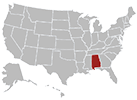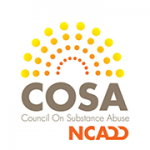
There are a handful of careers where personal experience is mandatory.
And the Alabama Certified Peer Recovery Support Specialist (CPSS) is one.
Also known as a professional recovery coach, The CPSS is a form of peer support revolving around mentoring and guidance for individuals struggling with substance abuse disorder.
According to Net Institute, over 24 million people are in recovery from various additions.
Peer recovery coaches are essential for anyone navigating recovery’s physical, psychological, and social pitfalls.
They help strengthen self-esteem and decrease hospitalizations and relapse.
Professional recovery coaches are a type of community-based social worker.
Recovery coaches help coordinate non-clinical services: housing, employment, scheduling, and even civil requirements.
But they also assist in locating vital resources.
They tether individuals struggling with chemical dependency for the road ahead.
Recovery coaches are trusted companions for those navigating mental health challenges.
Unsurprisingly, these trained, certified, and in some states, licensed professionals are in high demand.
Page Navigation
Steps to Become a Professional Recovery Coach in Alabama
Obtaining your peer recovery specialist certification in Alabama is not difficult, but a few general requirements must be met.
The Alabama Department of Mental Health worked in tandem with the Council on Substance Abuse (COSA) – NCADD to define and refine the Peer Recovery Support Specialist.
It is easy to apply for training and a peer recovery specialist certificate.
All candidates must be 18 or older.
And they must also have a valid Alabama driver’s license.
A high school diploma or GED is also required.
Additionally, a peer supporter must be in continuous personal recovery from substance use for two years.
Finally, the peer specialist must already work within an agency or organization or have a written commitment for hire.
Alabama’s process is a bit different than most states.
First, apply for training by emailing an application to the Alabama Department of Mental Health.
Don’t forget to sign the form and include two written references.
If accepted, the candidate can take the course and the certification exam.
Second – take an approved course.
Alabama requires a total of 40 core hours of peer recovery training covering:
- A strong overview of substance abuse.
- A lesson on how to navigate local resources.
- What it takes to advocate for individual rights.
- General training on basic coping and communication skills.
- General knowledge through roleplay of how to conduct a group.
Third – take a written examination.
Once trained, a peer support candidate must pass the state certification exam.
There are 125 multiple-choice questions, and the exam must be passed with a minimum score of 70%.
For individuals who want a certificate recognized worldwide, the IC&RC examination is available.
This 60-minute multiple choice exam requires a separate fee and can be taken online or at scheduled locations throughout the state.
Peer Certification Fees
In support of the overwhelming need for Certified Peer Recovery Coaches, the Alabama Department of Mental Health pays for the cost of the training.
It will compensate for hotel costs and meals during the week-long course.
Alabama’s Professional Recovery Coach Training
The Alabama Department of Mental Health schedules and coordinates peer specialist training.
However, there are several non-profit organizations and training programs throughout the state that provide advanced modules beyond basic competencies.
Alabama Department of Mental Health
The state is responsible for coordinating training for Peer Recovery Support Specialists.
These week-long programs require a commitment to the position.
An online application is required to be admitted to the training program.
Once accepted to the training, the cost of the course, hotel rooms, and meals are free; covered by the state of Alabama.
COSA-NCCD
Offered by COSA, several free online courses provide self-directed training for additional skills, continuing education, and community outreach.
View the website for rotating coursework.
University of Alabama
Excelling in the mental health area requires continuous advancement.
The University of Alabama, partnering with the Alabama Department of Mental Health (ADMH), has designed the MiMP-TP.
Trainees upskill their current substance use disorder training by completing two separate programs.
By combining academics and internships, MiMP-TP hopes to expand the reach of behavioral health paraprofessionals.
Level I requires a GED or high school diploma and Certification as a Recovery Support Specialist.
In comparison, Level II focuses on completing a 2,000-hour paid community apprenticeship.
Monthly stipends and financial assistance are available.
And both Level I and II are 12 months long.
NET Training Institute
The NET Training Institute is an IC&RC-accredited online program that offers Continuing Education Units (CEUs) and professional advancement modules.
Cost varies by course.
Financial aid and payment plans are available.
Recovery Coach Representative Schools in Alabama – Summary Table
Top 4 Schools in Alabama
| School Name | Address |
|---|---|
| Alabama Department of Mental Health | 100 North Union Street, Montgomery 36130, United States |
| COSA-NCCD | |
| University of Alabama | Tuscaloosa, AL 35487, United States |
| NET Training Institute |
Salary for Professional Recovery Coaches in Alabama
Certification as an Alabama Peer Recovery Support Specialist provides you with the knowledge to assist individuals with substance use disorders (SUDs).
However, your particular skills and personal experience will influence your starting salary.
The average annual compensation rate for Alabama peer recovery support specialists is $31,300; the highest salary reported is $35,280.
There are numerous work opportunities in both large communities and rural towns.
To find a job in peer recovery services, check out non-profit organizations, correctional facilities, or faith-based environments.
There are also positions at private recovery locations.
The demand is high for Certified Peer Recovery specialists in Alabama and throughout the Gulf of Mexico.
Annual Salary Range:Average Salary of Professional Recovery Coachs in Alabama
| City Name | Salary |
|---|---|
| Birmingham | $32,480 |
| Montgomery | $30,862 |
| Mobile | $31,826 |
| Huntsville | $32,910 |
| Tuscaloosa | $32,264 |
| Madison | $32,910 |
| Dothan | $29,613 |
| Decatur | $31,826 |
| Auburn | $31,057 |
| Gadsden | $32,419 |
Regional Salary in Alabama
| Region | Employed | Avg. Annual Salary | Avg. Hourly Pay | Top 10% Annual Salary | Bottom 10% Annual Salary |
|---|---|---|---|---|---|
| Anniston-Oxford, AL | 80 | $75,310 | - NA - | $101,340 | $20,830 |
| Auburn-Opelika, AL | 270 | $86,460 | - NA - | $# | $21,630 |
| Birmingham, AL | 670 | $47,040 | - NA - | $76,110 | $21,730 |
| Daphne-Fairhope-Foley, AL | 110 | $39,410 | - NA - | $56,980 | $21,830 |
| Decatur, AL | 40 | $33,330 | - NA - | $50,420 | $18,970 |
| Florence-Muscle Shoals, AL | 60 | $47,440 | - NA - | $76,950 | $21,530 |
| Gadsden, AL | 40 | $26,060 | - NA - | $37,780 | $17,310 |
| Huntsville, AL | 270 | $46,150 | - NA - | $77,760 | $23,080 |
| Mobile, AL | 230 | $63,430 | - NA - | $105,600 | $21,860 |
| Montgomery, AL | 270 | $45,610 | - NA - | $79,510 | $21,630 |
| Tuscaloosa, AL | 210 | $133,340 | - NA - | $# | $23,530 |
* Employment conditions in your area may vary.
Frequently Asked Questions
How often should Alabama peer recovery certificates be renewed?
Annual renewal is expected for Alabama peer support specialists.
Part of the recertification requirement is 16 or more continuing education hours.
What skills are needed to be a peer recovery specialist in Alabama?
Recovery coaches are authentic.
They also have excellent communication skills and patience.
A successful peer recovery coach listens and empathizes without becoming too involved in the daily minutia.
Are peer recovery coaches medical providers?
No, peer recovery coaches do not have a license to practice medicine.
Nor are they mental health therapists.
Instead, they provide a much-needed anchor for those in recovery.
Peer Recovery Specialists are armed with extensive knowledge and practical skills to defuse unexpected social situations.
They are trained in city resources, harm reduction, moderation management, and 12-step programs.
What are the ethics and values of peer recovery specialists in Alabama?
Peer Recovery Specialists are a lifeline when stress or events threaten an individual’s path.
They believe in honesty-respecting all individuals.
And because they are in recovery themselves, they strive to lead by example – maintaining high moral and social values.




